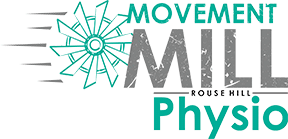Are you in your twenties and suffer from chronic back, neck or elbow pain?
Get serious back spasms after working out?
Can’t concentrate while studying due to pain or discomfort?
These are common symptoms of someone with ankylosing spondylitis (AS). AS is a fancy term for a condition that causes inflammation in the spine, joints and tendons. Basically, the body tricks its own immune system to attack the spine and other joints which can cause pain. It’s estimated that around 2% of the arthritis population have AS but there are plenty of people out there with the condition that haven’t been diagnosed yet! AS shares the same symptoms to many different conditions therefore, it’s common for AS to be misdiagnosed as chronic low back pain and/or other tendon injuries such as tennis elbow.
If you experience chronic low back, neck, elbow and heel pain that just doesn’t go away you might want to check it out! It’s not normal to wake up every day feeling stiff and feeling pain after every gym session. Physiotherapists can help you by finding out what’s really causing your pain and giving you the right treatment to help you get your life back on track.
My role as a physiotherapist is to help you move freely and monitor your symptoms. We make sure that your spine isn’t fusing or losing its flexibility by doing a couple of special tests (Modified Schober’s test) and making sure your muscles are nice and strong to help support your spine. Having strong muscles will help take the load off your spine and joints which will prevent stress fractures which is common in advanced stages of AS.
If AS is left untreated your spine will start to fuse and you will lose your ability to move your neck, back and other parts of your body. Once your spine has fused it’s irreversible. You may need major surgery and still not be able to live a normal life. Therefore, it’s important to get an early diagnosis and get treated as soon as possible. Although there is no cure for this condition, through exercise and medication, it’s possible to live a normal healthy life.
From experience, having something like AS can be very scary and people often respond with “I have what?!” and “am I going to be okay?” It will be my job as a physiotherapist at Rouse Hill Physio and AS sufferer myself to help guide you and answer any questions that you have.

